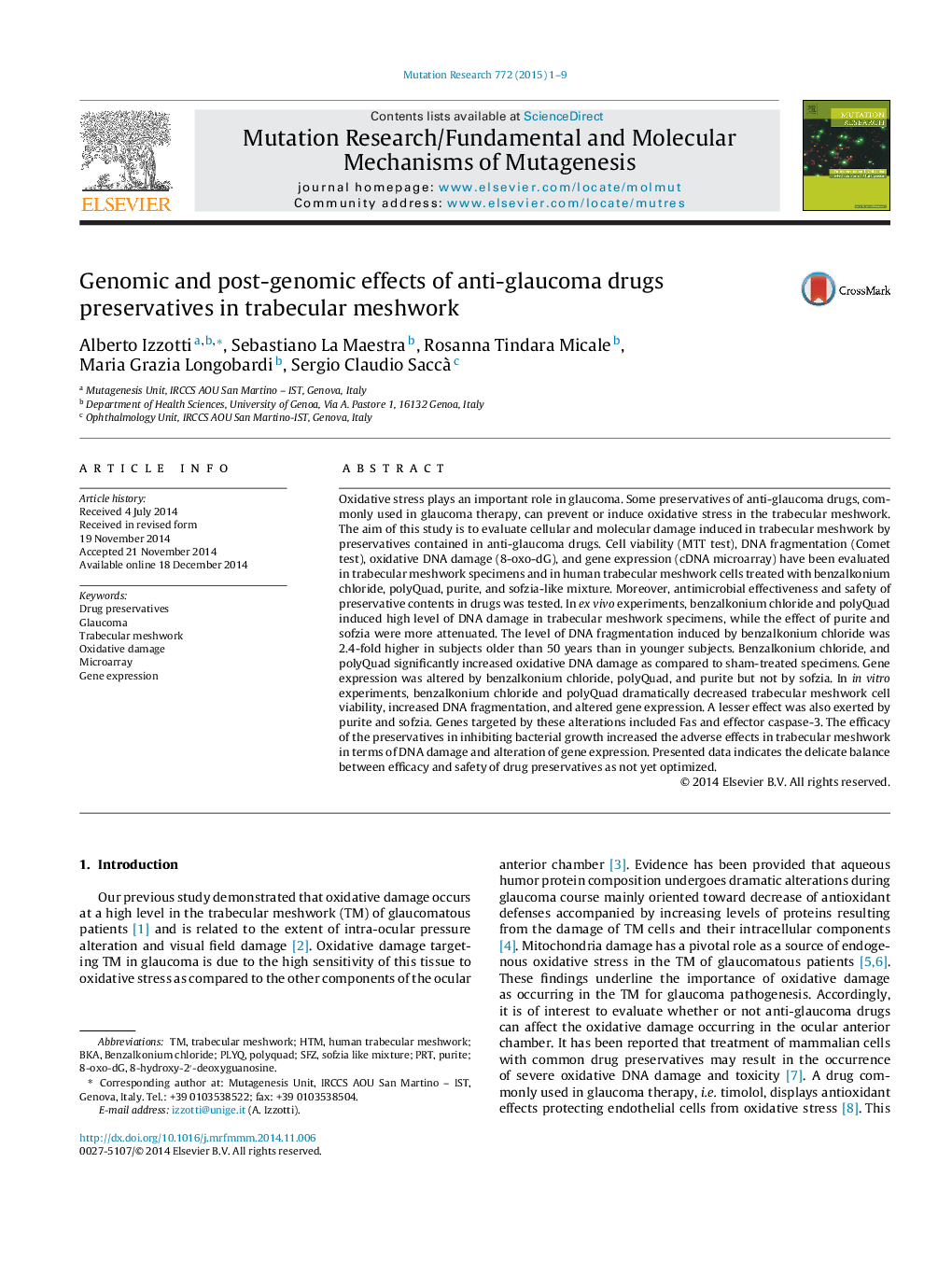| Article ID | Journal | Published Year | Pages | File Type |
|---|---|---|---|---|
| 8455747 | Mutation Research/Fundamental and Molecular Mechanisms of Mutagenesis | 2015 | 9 Pages |
Abstract
Oxidative stress plays an important role in glaucoma. Some preservatives of anti-glaucoma drugs, commonly used in glaucoma therapy, can prevent or induce oxidative stress in the trabecular meshwork. The aim of this study is to evaluate cellular and molecular damage induced in trabecular meshwork by preservatives contained in anti-glaucoma drugs. Cell viability (MTT test), DNA fragmentation (Comet test), oxidative DNA damage (8-oxo-dG), and gene expression (cDNA microarray) have been evaluated in trabecular meshwork specimens and in human trabecular meshwork cells treated with benzalkonium chloride, polyQuad, purite, and sofzia-like mixture. Moreover, antimicrobial effectiveness and safety of preservative contents in drugs was tested. In ex vivo experiments, benzalkonium chloride and polyQuad induced high level of DNA damage in trabecular meshwork specimens, while the effect of purite and sofzia were more attenuated. The level of DNA fragmentation induced by benzalkonium chloride was 2.4-fold higher in subjects older than 50 years than in younger subjects. Benzalkonium chloride, and polyQuad significantly increased oxidative DNA damage as compared to sham-treated specimens. Gene expression was altered by benzalkonium chloride, polyQuad, and purite but not by sofzia. In in vitro experiments, benzalkonium chloride and polyQuad dramatically decreased trabecular meshwork cell viability, increased DNA fragmentation, and altered gene expression. A lesser effect was also exerted by purite and sofzia. Genes targeted by these alterations included Fas and effector caspase-3. The efficacy of the preservatives in inhibiting bacterial growth increased the adverse effects in trabecular meshwork in terms of DNA damage and alteration of gene expression. Presented data indicates the delicate balance between efficacy and safety of drug preservatives as not yet optimized.
Keywords
Related Topics
Life Sciences
Biochemistry, Genetics and Molecular Biology
Cancer Research
Authors
Alberto Izzotti, Sebastiano La Maestra, Rosanna Tindara Micale, Maria Grazia Longobardi, Sergio Claudio Saccà ,
